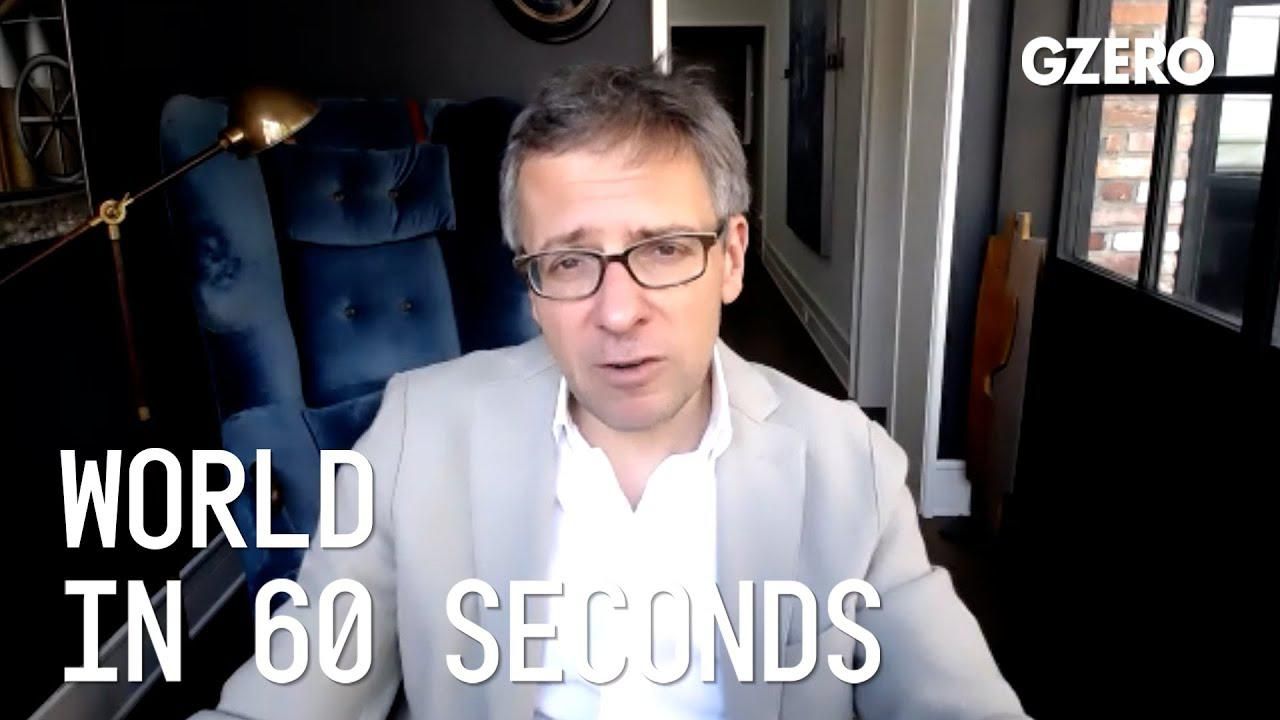
Ian Bremmer shares his perspective on global politics on World In 60 Seconds (aka Around the World in 180 Seconds) and discusses Xi Jinping's message to the US, Russia's buildup at the Ukraine border, and Cuba's new leader.
What did you make of Xi Jinping's message to the US at China's annual Boao Forum?
Well, he didn't mention the United States directly, but he basically said that we don't accept hegemonic powers, we don't accept people that are setting the rules for other countries. Basically, consistently Xi Jinping saying that the Chinese want to be treated as equals with the United States. They're going to be rule makers for themselves. The Chinese political and economic system, every bit as legitimate as that of the United States. This is going to be a real fight. The American perspective is that the relationship between the two is going to be very competitive, whether it's a happy competition or an unhealthy competition depends on the Chinese. Xi Jinping's perspective is the Americans are not treating the Chinese with due respect. And that's going to play out on security, it's going to play out in climate, on the economy. I mean, you name it.
Is Russia's increased troop presence at the Ukrainian border really only a military exercise?
No, nothing is ever only a military exercise when the Russians are engaging in this kind of territorial bluster. What they're saying is that they will not be cowed by the Americans. The Ukrainian government acting more independently than had been expected by Putin, putting sanctions under oligarchs that Putin likes and is close to, asking for a membership action plan from NATO. All of that is something that Putin wants to show that Biden doesn't have his back, he's angry at the Ukrainians, and the only way forward is the Minsk Process, and that means tens of thousands of troops. The Ukrainians are not going to provoke by engaging in conflict. I would be very surprised if the Russians actually engaged in any further intervention, actually went across the border. I suspect we'll see a climb down at the end of this two week period, as the Ministry of Defense in Russia said. But they have made it very clear to the Americans that this conflict is not getting resolved easily.
A Castro no longer leads Cuba. Who is the new leader and how will the country change?
The new leader is Miguel Díaz-Canel. He is the first non-Castro to run communist Cuba. This is half a century we're talking about. He's not a former military guy. He's mostly a technocrat, bureaucrat that focuses on the economy. That having been said, still communist Cuba and the United States is not engaging in policies of economic and political opening right now. I do think that's the way forward. I think that if the United States were to go back to the policies that we saw started under President Obama, where you engage in trade, the power asymmetry is so great that as the Cuban economy starts getting more influence and more dependence on American tourists and on remittances and on all of the things that the dominant American economy would provide, the pressure on the Cuban communist government to collapse would be very high. That's the way forward, but there's no political support for that right now. It's not high on the agenda for the Biden administration, so you don't expect it. But with Castro out, makes it easier for some of the members of Congress that have had challenges.